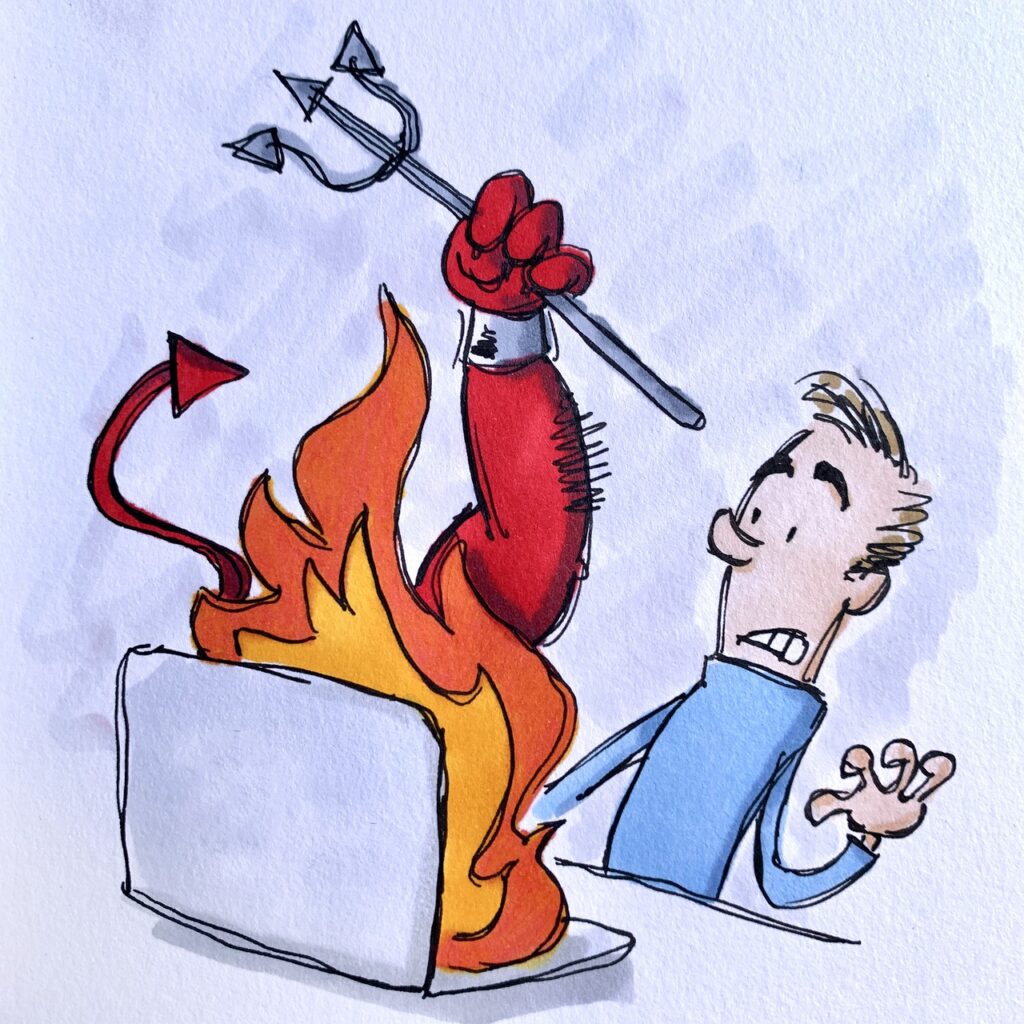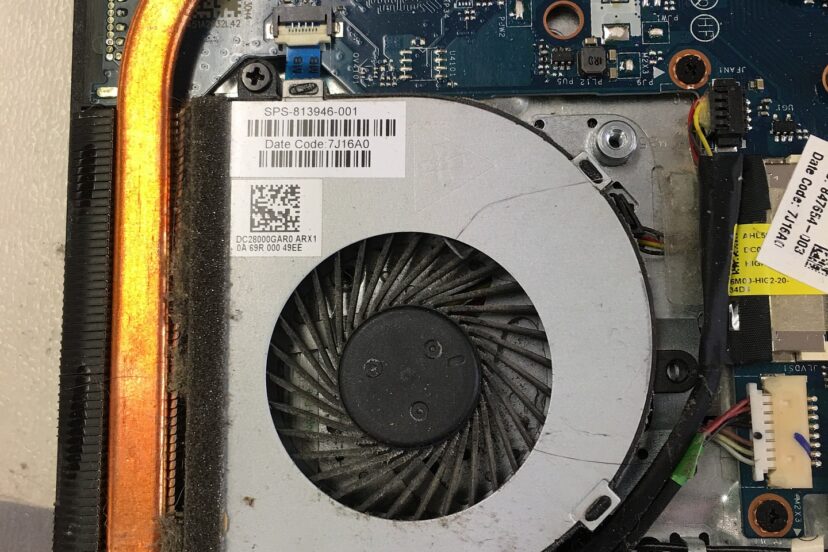How Do I Know If My PC Is Overheating During Gaming? 6 Important Things to Check
How Do I Know If My PC Is Overheating During Gaming: Introduction
“How Do I Know If My PC Is Overheating During Gaming?”—If this question has crossed your mind, you’re not alone. Are you an avid gamer who dives deep into the realms of battles, quests, and virtual conquests for hours on end? Nothing is more disheartening than being yanked out of that immersive experience by abrupt game crashes or excruciatingly slow performance.
Chances are, these issues might be stemming from a root cause you haven’t considered: an overheating PC. When your computer overheats, it doesn’t just dampen your gaming escapades; it can also potentially damage your hardware, leading to costly repairs or replacements.
So, what are the red flags you should be aware of to diagnose an overheating issue? This article is designed to guide you through the telltale signs that can help you identify if your PC’s declining performance during those critical gaming moments is heat-related.
Grab your gaming gear and let’s dive deep into understanding how to keep your PC cool, ensuring a seamless and captivating gaming experience!
Common Signs of PC Overheating
When you’re engrossed in a gaming session, the last thing you want is for your PC to suddenly shut down. This is one of the most common signs of overheating. When your computer’s internal temperature rises to dangerous levels, it will automatically shut down to protect itself from damage. Keep an eye out for any random shutdowns during gaming sessions, as they could be an indicator that your PC is overheating.
Another sign to watch out for is unusual fan noises. Normally, your PC’s fans will run quietly in the background to keep your system cool. However, if you start hearing loud or strange noises coming from your PC’s fans, it could mean that they are working overtime to combat excessive heat. These unusual fan noises may be a result of a buildup of dust and debris, which hampers their effectiveness and causes them to make more noise.
Slow performance can also be a sign of overheating. When your PC gets too hot, it starts to struggle with processing power, which can cause your games to lag or your applications to run slowly. If you notice a sudden drop in performance during gaming, it’s worth considering if overheating is the culprit.
Lastly, screen freezing can be a telltale sign of a high internal temperature. If your screen suddenly freezes or becomes unresponsive during intense gaming, it could be a result of your system overheating. Heat causes the internal components of your PC to work harder, which can lead to freezing or crashes.
Monitoring Software
To keep a close eye on the temperature of your PC and prevent overheating, there are various monitoring software options available. These tools allow you to monitor the temperature of your hardware components in real-time, giving you the opportunity to take action before any serious damage occurs.
There are hardware monitoring tools that directly monitor the temperature of your CPU, GPU, and other components. These tools provide accurate and detailed information, allowing you to make informed decisions about cooling solutions.
Software monitoring tools also exist, which utilize the internal sensors in your CPU to measure temperature. These tools display the temperature readings in an easy-to-understand format, making it simple to identify any overheating issues.
If you’re unsure which monitoring software to choose, there are some recommended options worth considering. Programs such as HWMonitor, Core Temp, and SpeedFan are all reliable choices that provide comprehensive temperature monitoring capabilities.

How Do I Know If My PC Is Overheating During Gaming: Checking Internal and External Factors
When it comes to combating PC overheating, it’s essential to address both internal and external factors that can contribute to excessive heat buildup. Here are some important steps to consider:
Cleaning dust and debris from your PC is crucial. Over time, dust and dirt accumulate in your PC’s vents and fans, obstructing airflow and leading to higher temperatures. Regularly cleaning these components with compressed air or a soft brush can help maintain optimal cooling performance.
Check the airflow within your PC. Ensure that all fans are functioning properly and spinning freely. If you notice any fan issues, such as slow or erratic spinning, it may be necessary to replace them.
Ventilation and space are key. Make sure that your PC has adequate space to allow for proper airflow. Place it in a well-ventilated area, away from walls or other objects that could obstruct airflow.
Consider the placement of your PC. If your computer is located in a small, enclosed space, it’s more likely to overheat. Try to position it in an open area where there is better airflow.
Avoid blockages around your PC. Keep your computer away from objects that could block the vents or hinder the circulation of air, such as books, clothing, or other electronic devices.
Using Temperature Monitoring Techniques
To effectively monitor the temperature of your PC and identify potential overheating issues, you can utilize various temperature monitoring techniques. These techniques will help you keep a close eye on the temperature of critical components and take appropriate action if needed.
Check CPU temps regularly. Your CPU is one of the primary heat-generating components in your PC. By monitoring its temperature, you can spot any abnormal increases that may indicate a cooling problem. Use software monitoring tools or the BIOS to access CPU temperature readings.
Monitor GPU temps as well. Gaming often puts a significant load on your graphics card, causing it to generate heat. Keep an eye on the GPU temperature to ensure it stays within safe limits. Many monitoring tools, such as MSI Afterburner, provide real-time GPU temperature information.
Measure ambient temperature. The overall temperature of the room where your PC is located can affect its cooling performance. Ideally, the ambient temperature should be around 20-25 degrees Celsius. Use a thermometer to check the room temperature and consider adjusting it if necessary.
Test your PC with stress and benchmark programs. Stress testing your PC using programs like Prime95 or FurMark can push your hardware to its limits and reveal any potential overheating issues. Benchmark programs, such as 3DMark, can also provide valuable insights into the performance and temperature of your PC during intense workloads.
Consider using thermal imaging. While not a common technique for most users, thermal imaging cameras can give you a visual representation of the heat distribution inside your PC. This can help identify any hotspots or areas that require additional cooling.

Benchmarking and Stress Testing
To gauge the overall performance and temperature of your PC, utilizing benchmarking software is highly recommended. Benchmarking programs push your hardware to its limits, assessing its performance and identifying any bottlenecks or issues that may lead to overheating.
By maximizing CPU and GPU usage, benchmarking software pushes your PC to its limits, replicating intense workloads such as gaming or graphic design. This allows you to evaluate the performance and temperature of your system under heavy usage conditions. Analyzing the results can help you identify if your PC is prone to overheating during demanding tasks.
Utilizing Hardware Diagnostic Tools
In addition to monitoring software, various hardware diagnostic tools are available to identify and diagnose potential hardware problems that could contribute to PC overheating. These tools target specific components and can help pinpoint the source of any heat-related issues.
BIOS diagnostic tools provide access to vital system information, including temperature readings. The BIOS allows you to monitor your CPU and other hardware components to ensure they are operating within acceptable limits.
Motherboard diagnostic software is designed to analyze the health of your motherboard and its connected components. This type of software can provide insight into issues that may be contributing to overheating, such as faulty sensors or inadequate power delivery.
Graphics card diagnostic tools, such as GPU-Z, enable you to gather detailed information about your graphics card’s performance and temperature. These tools can help identify any overheating issues specific to your GPU.
Memory diagnostic tools, such as Windows Memory Diagnostic, allow you to test the integrity of your system’s RAM. Faulty memory modules can cause your PC to overheat, as they can lead to increased usage of other components. Running regular memory diagnostics can help identify and resolve such issues.

How Do I Know If My PC Is Overheating During Gaming: Other Indicators of Overheating
While the signs mentioned earlier are the most common indicators of PC overheating, it’s important to be aware of other potential signs as well. These signs may not always be as obvious, but they can still provide valuable clues:
Listen for increased noise levels. As your PC’s components work harder to dissipate heat, you may notice an increase in fan noise or other unusual sounds coming from your computer. Unusual or louder-than-normal noises can indicate that your PC is struggling with excessive heat.
Be cautious of hot surfaces. If you notice that certain areas of your PC, such as the case or specific components, feel excessively hot to the touch, it may indicate that your PC is overheating. However, be cautious not to touch any internal components while your PC is powered on, as they can get extremely hot and cause injury.
Pay attention to strange smells. Overheating components can emit a distinct odor, often described as a burning or metallic smell. If you detect any unusual smells coming from your PC, it’s essential to identify and resolve the overheating issue promptly to prevent further damage.
Maintaining Proper Cooling
To ensure that your PC stays cool and avoids overheating, it’s important to consider various cooling solutions. Here are some effective methods to maintain proper cooling within your system:
Consider upgrading your cooling systems. If you’re experiencing frequent overheating issues, it might be time to upgrade your cooling solutions. Investing in a more powerful CPU cooler or a more efficient GPU cooler can significantly improve cooling performance.
Install additional fans. Increasing the number of fans in your PC case can improve airflow and cooling. By strategically placing additional fans in areas with hotspots, you can effectively dissipate heat and prevent overheating.
Liquid cooling systems offer an efficient solution for cooling your PC. By replacing traditional air-based cooling methods with liquid-based solutions, you can achieve better temperature management. However, liquid cooling systems require proper installation and maintenance to ensure optimal performance.
Applying thermal paste between your CPU and its cooler can help improve heat transfer and cooling performance. Over time, thermal paste can degrade, leading to poor thermal conductivity. Applying a fresh layer of thermal paste can restore efficient heat dissipation.
How Do I Know If My PC Is Overheating During Gaming: Preventive Measures
Preventing PC overheating requires adopting good habits and practices. Here are some preventive measures to keep in mind:
Regularly clean your PC. Dust and debris can accumulate over time and hinder airflow, leading to overheating. Wipe down your PC case, clean the fans, and remove any visible dust regularly.
Ensure proper cable management. A cluttered and tangled mess of cables inside your PC can disrupt airflow and lead to higher temperatures. Organize and route your cables neatly to allow for proper airflow.
Maintain an optimal room temperature. Extreme temperatures can negatively impact your PC’s cooling performance. Aim for a room temperature between 20-25 degrees Celsius to provide the best environment for your system.
Unblock vents and airflow paths. Check for any obstructions that may be blocking vents or restricting the flow of air within your PC. Ensure that all intake and exhaust vents are clear to facilitate proper cooling.
Avoid overclocking your hardware. While overclocking can boost performance, it also increases heat output. Consider if the benefits outweigh the increased risk of overheating. If you do choose to overclock, ensure that your cooling solutions are sufficient to handle the increased heat load.
Seeking Professional Help
If you’ve tried all the preventive measures and your PC continues to overheat, it may be time to seek professional help. Here are some options to consider:
Consult technical support. Contact the manufacturer or a reputable computer technician for assistance. They can provide specialized advice and guidance to help diagnose and resolve your PC’s overheating issues.
Consider professional cleaning and maintenance. Professional cleaning services can thoroughly clean your PC and ensure that all components are free from dust and debris. They can also inspect and optimize your cooling setup, ensuring that your PC runs at optimal temperatures.
Replace faulty components. If your PC is consistently overheating despite your efforts, it’s possible that certain components may be faulty. In such cases, it may be necessary to replace these components to restore proper cooling and prevent further damage to your system.
By following these comprehensive guidelines, you can effectively monitor your PC’s temperature, identify signs of overheating, and take the necessary steps to maintain ideal cooling conditions. Remember, prevention is key, and regular maintenance and monitoring can save you from potential damage and unexpected system failures. Keep your PC cool and enjoy uninterrupted gaming sessions!
How Do I Know If My PC Is Overheating During Gaming: Conclusion
In summary, knowing if your PC is overheating during gaming is crucial not just for the optimal performance of your system but also for its longevity. Ignoring the signs of overheating could lead to severe hardware damage and degrade your overall gaming experience.
Firstly, monitor your system’s temperature using specialized software, or even through built-in BIOS settings, to get real-time data. This will offer a clear picture of whether your PC is overheating during gaming or operating within acceptable limits.
Secondly, pay attention to physical cues. Unusual system noise, frequent crashes, and slowdowns can also be indicators of overheating. If you notice these signs, it may be time to investigate and possibly take corrective actions like cleaning your system, reapplying thermal paste, or improving ventilation.
Finally, be proactive about maintenance. Regular cleaning, keeping your PC in a well-ventilated area, and occasional hardware upgrades can go a long way in preventing overheating issues in the first place.
By taking these steps, you can enjoy a seamless and enjoyable gaming experience without the nagging worry of damaging your valuable PC due to overheating.




